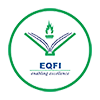
Assessment is an indispensable tool in the school system for determining students’ academic performance. It is an integral part of a student's educational experience. The primary goal of assessment is to evaluate the present status of each student's cognitive level and subsequently build on improving student learning levels through the needful intervention.
There has been a paradigm shift in assessment approach as we move away from the conventional methodology i.e. assessment of learning to a more nuanced approach, assessment for learning. The paradigm shift ensures that assessment procedure is able to achieve its basic purpose and objective, which is to improve students’ learning. The shift also promotes the need to ensure that the school administrators, teachers and other educational stakeholders should not rely solely on the assessment results derived from assessment of learning which basically categories students on the basis of their marks, as intelligent or dull.
Assessment procedures in formal education and training have traditionally focused on examining knowledge and facts through formal testing and do not easily lend themselves to grasping ‘soft skills’. Contrarily, the contemporary scenario in today’s globalized world is experiencing accelerating changes that are not just limited to technological developments, but also societal developments as a whole. Hence, the skills and competencies needed for work and life in the 21st century are continuously evolving. There is a need to acknowledge that the crucial skills of the 21st century are something that cannot be taught or assessed through conventional modes of teaching-learning and assessment. Hence, it is imperative to ensure that students are not just tested on their academic understanding but also on their mental ability as well their capability to perform a certain task that could range from numerical reasoning, non-verbal reasoning, cognitive ability, inductive reasoning etc.
The overarching goal of assessment is to assess student learning to find out how well students are learning what they are being taught—to what degree are they accomplishing the learning outcomes that the teachers hold for them. Information from assessments can tell instructors, programs, and institutions if they need to make changes in what they teach or how they teach it. The assessment planning also lends itself to understand what is important to learn. Hence, structured learning outcomes ensure systematic structuring of teaching-learning processes which has a positive impact on student learning.
We have worked extensively in the area of assessment tool preparation ranging from subject specific tools in Languages (English and Hindi), Mathematics, Science, and EVS. We have expertise of developing life skill assessment tools, relating to 21st century skills, personality development as well as measuring wellness of students.
Testing is a core component of teaching and requires creating good questions and correct grading of the answers. We design and customize tools according to the on-ground scenario of students’ learning abilities. Our test questions are prepared post creation of a blueprint which is set as per the Bloom’s Taxonomy. There is a clear classification of the knowledge dimensions and cognitive processes involved in the completion of a test task. Questions are prepared keeping in mind the appropriate difficulty level (as one moves from lower order skills to higher order skills on Bloom’s pyramid).
